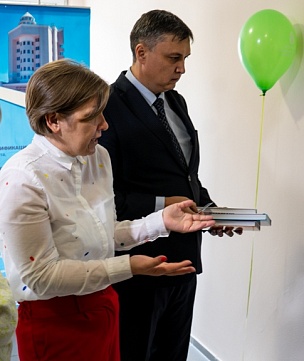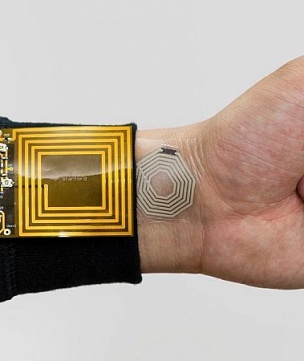
Amid the expected increase in costs for building automation, ABB is demonstrating its new developments, which should bring the safety and comfort of residents to a new level and unlock the potential of a "smart home".
With the ABB-Access Control system, which will be available very soon, homes will get smart doors. Thanks to the built-in RFID chip, they can be opened remotely via a mobile app or automatically based on time settings. A comprehensive access control system combined with time profiles and logs make this solution ideal for personal access control.

JSC "United Energy Company" plans to install an innovative control devices of combustion of the lamps on the ring road and outbound motorways of Moscow in 2019.
For the organization of technical accounting of outdoor lighting installations, it is planned to install 7 thousand wireless identifiers (RFID-tags). The use of radio frequency identifiers will allow inventory and accounting of property, control of movement and automation of warehouse processes, as well as improve the quality of operation of outdoor lighting installations and reduce the impact of the human factor.
The implementation of this program will improve the safety of the urban environment, the quality and reliability of outdoor lighting in Moscow.

"Marking library Fund RFID-tags and the use of special readers allow you to control the process of turnover of books inside the library, quickly find the right copy among others.
Radio frequency waves allow you to quickly read the data, which simplifies their receipt and delivery.
"Marking library Fund RFID-tags and the use of special readers allow you to control the process of turnover of books inside the library, quickly find the right copy among others. Special self-service stations and electronic reading tickets speed up the process of working with readers, eliminate errors in the process of receiving and issuing books, " said Irina Kuznetsova, Director Of the scientific library of the UNIVERSITY.
The University notes that the equipment is able to scan books in a stack with the help of radio frequency waves, which significantly saves time when making them. Through the equipment, you can return the books. Also, the equipment will signal if someone tries to quietly take out the door: the electronic gate will emit a siren sound and light up with a red light.

Tatneft Group's tire business KAMA TYRES plans to launch mass production of Kama PRO brand CMC tires equipped with RFID tags in 2020. Prototypes have already been transferred to the company's partners, transport and logistics operators for testing the technology in real conditions of operation. Equipment of transport and trucks with products with radio frequency identification tags will allow enterprises to automatically track the entire life cycle of tires, as well as to carry out their accounting.
Within the framework of the project, a pilot batch of Kama PRO CMC tires was assembled at THE Kama TYRES enterprise, in which a microchip (RFID transponder) was built into the Board during production. Such products leave a digital footprint at every stage — production, distribution, warehousing, operation, repair, tread repair and recycling-that can be easily tracked and deciphered through a variety of information systems.
Also, the consumer will be able to remotely and independently enter additional information on the RFID carrier, for example, on the progress of maintenance and use of tires (pressure, wear, etc.).

The Supervisory Board of VEB on Thursday considered participation in the program to create a national system of marking and tracing of goods within the framework of project financing, Russian Prime Minister Dmitry Medvedev said.
In 2016, the EAEU countries introduced mandatory marking of fur coats and fur products with RFID tags. To reduce the share of illegal products in Russia, it is planned to create a system of continuous labeling and traceability of goods by 2024. On March 1 this year, mandatory labeling of cigarettes and cigarettes began, on July 1 - shoes. In December, the labeling of perfumes, cameras, car tires, as well as some light industry goods, including coats, raincoats, jackets, bed and table linen, will begin.

Researchers at Stanford University have created a flexible electronic sticker that can simultaneously wirelessly monitor heart rate, breathing and muscle activity.
It is based on RFID technology. The antennas used here are made of metal ink applied to a rubber sticker that can bend and stretch like human skin. As you progress through the movements of the electric current passing through these metallic ink changes, recording the smallest measurement. But while this flexible antenna provides very close skin contact, all these movements in the antennas can disrupt the radio waves sent to the receiver.










